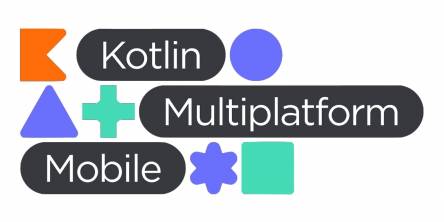Top Technologies Used In Smart Factories

Digital transformation is leading the way in reshaping the factories of the future. The term smart factories or industry 4.0, enables manufacturers to refine production processes, manage global market competition, and realize significant returns. The ultimate objective of this transformation is to boost efficiency, flexibility, design, and integration. These transformative technologies are set to offer unrivaled opportunities for growth and competitiveness.
In this article, I will explore the various top technologies such as the cloud, IoT, Artificial intelligence (AI), Machine Learning (ML), and more that are being used to create smart factories.
How Transformative Technologies Are Creating Smart Factories
- Cloud integration: Cloud integration helps connect various cloud-based systems such as private, public, or hybrid cloud, to enable communication, coordination and data sharing, and this integration helps create smart factories. Cloud integration can provide a flexible, cost-effective and scalable platform for manufacturing services and applications. The cloud platform integration can help collect, analyze, and visualize data in real-time. The source data can be collected from sensors, devices, machines, assets, and even the workforce. It can help in communication and collaboration between the various stakeholders, and allow innovation and customization while adapting to the changing market requirements.
- Artificial intelligence (AI) and Machine Learning (ML): Factories or manufacturing facilities using AI technologies find that they have the flexibility and the speed to gather and analyze big data from multiple sources. This helps in identifying patterns and trends, enabling stakeholders to gain insights into the production performance process. Artificial intelligence when paired with machine learning can do wonders and bring about visible and valuable benefits. Predictive maintenance is one of the biggest advantages of using ML. Using ML to monitor and analyze manufacturing processes can help identify faults and trigger alerts before any system failure. These triggers can also send our alerts for automated maintenance or ask for human intervention where needed.
- Automation and Robotics: For years, robotics and automation have been revolutionizing the manufacturing industry, and this is a trend that will likely continue. Robotic process automation has been instrumental in advancing smart manufacturing, with robots assuming repetitive and potentially hazardous tasks such as assembly, and material handling. Robotic technology can execute repetitive tasks more quickly and with greater accuracy and precision than human workers, enhancing product quality and minimizing defects. Manufacturers can also merge robotics with Industrial Internet of Things (IIoT) sensors and big data analytics to establish a more adaptable and reactive production environment. Robotic automation can enhance system efficiency, minimize errors, reduce equipment downtime, and promote worker safety in manufacturing operations. An additional advantage is that robots can operate continuously, enabling manufacturers to function 24/7 and significantly boost productivity.
- Industrial Internet of Things: Industrial Internet of Things or IIoT, is a term that is used for connected sensors or devices in an industry or factory. IIoT helps improve efficiency through the process of automation and self-monitoring. IIoT can record and optimize production, by balancing supply and demand. IIoT can help automate operations by giving a real-time status of equipment and their performance using dashboards that allow operators to make data-based informed decisions.
- Sustainable manufacturing: Manufacturing processes frequently demand substantial energy and water resources and can often generate harmful waste and by-products. This has led to sustainability initiatives gaining traction in modern manufacturing processes. Today consumers exhibit heightened environmental awareness, and governments persist in enforcing regulations to curtail carbon emissions and safeguard the environment. This increases manufacturer's responsibility to alleviate climate change impacts by striving for carbon neutrality and reducing their carbon footprints. Companies committed to sustainable manufacturing attempt to diminish waste, preserve resources, and limit the utilization of harmful substances. They achieve this by harnessing renewable energy sources, embracing the principles of the circular economy, and launching environmentally friendly production processes.
- Blockchain: The blockchain is an unchangeable or immutable, shared ledger that enables recording transactions and tracking assets within a network. Anything that signifies any value such as a car, cash, intellectual property, or patents can be tracked. It reduces risks and helps cut costs by removing the middleman. Modern businesses run on the power of data and information, where its speed and accuracy count the most. Blockchain is the ideal tool for transmitting that information, as it can provide shared and transparent information that can be accessed only by those within the network who have permission to access the data. Blockchain reduces the manual paperwork, and processes and eliminates the need for intermediaries, helping save time and costs. It can be used to generate smart contracts and asset tokenization.
- 3D printing: 3D printing or additive printing uses digital designs as guides to create products from scratch, on demand. This technology is perfect for prototyping, and manufacturing small batches of items. It is ideal for developing parts and functional prototypes, along with items that require high detail. Because it can ‘print’ items, it is now possible to create complex geometrical products that would have been difficult to develop before. The technology uses different processes, techniques and raw materials that can be used in metal and plastic products. Some of the techniques of 3D printing are vacuum casting, fused deposition modeling (FDM), and multijet fusion. Additive printing is a game changer and allows manufacturers to offer customization and personalization to their customers.
Final Words
The use of transformative technologies like cloud computing, IIoT, additive printing and Blockchain are revolutionizing the manufacturing process and paving the path for smart factories of the future. The technological transformation in smart factories is a dynamic and ongoing process, where manufacturing software development services can help companies of any size harness the potential of such technologies.
Similar Articles
In today's technologically advanced landscape, understanding heat distribution is critical for enhancing efficiency and safety across various sectors. Infrared thermography, a pivotal imaging technique, has revolutionized how professionals view and analyze thermal performance.
In this digital age, there are many options available for marketing, but the one that stands out as one that can transform the marketing realm is programmatic connected TV (CTV). The programmatic CTV approach for advertising shows the changing trend in how brands would like to connect with their audience.
PHP has a dominant market position, with over 79% of websites powered to some degree. Developers majorly utilize organized and leveled PHP basic functions, known as PHP frameworks, to create flexible output.
The nonstop hum of machines around us, from the humongous industrial complexes to the processors within the gadgets, shapes our everyday lives. These mechanical advancements have become essential, driving everything from fundamental necessities to our vehicles, airplanes, and so forth.
New methods of managing a Pilate business are transforming the way studios operate. It simplifies routine tasks and helps fitness businesses to grow and facilitate their customers in various ways.
Discover if the S23 Ultra case is compatible with the S24 Ultra. Get insights on fit, protection, and functionality in this comparison.
In the era of astoundingly quick technological progress, organizations are increasingly feeling the need to adjust to the evolving market demands and their requirements by embracing digital transformation
With the rise of mobile devices and the ever-growing demand for cross-platform solutions, businesses are constantly seeking efficient ways to develop applications that can be used on multiple platforms. This is where Kotlin Multi Platform comes into play. Kotlin Multi-platform is a versatile technology that allows developers to write code once and deploy it on various platforms such as Android, iOS, and web.
Discover reliable network cabling solutions ensuring seamless connectivity for remote work. Enhance productivity with consistent connections anywhere.









